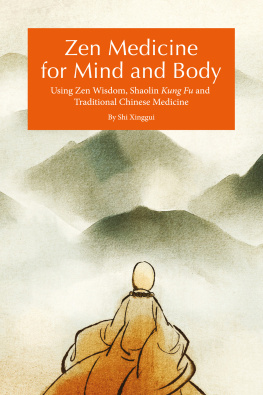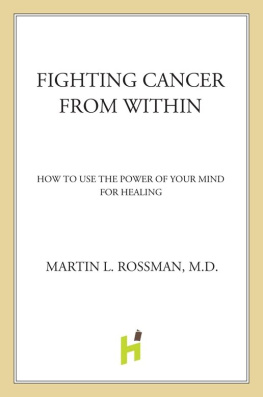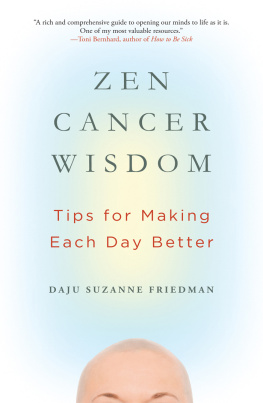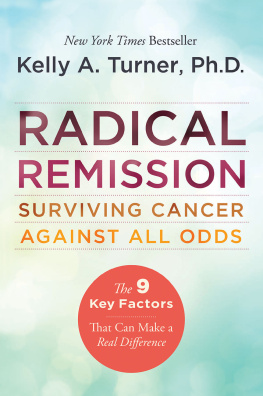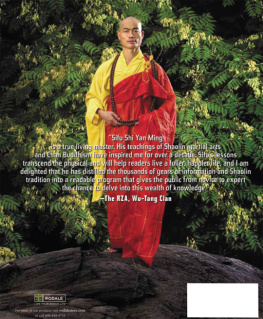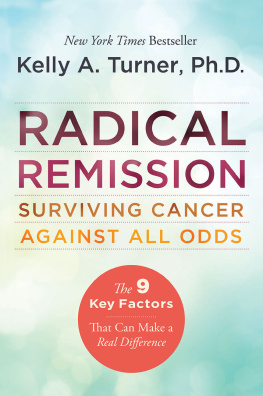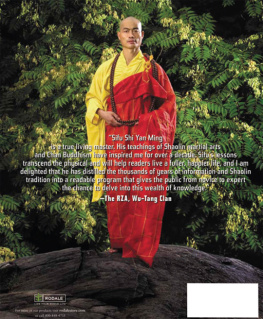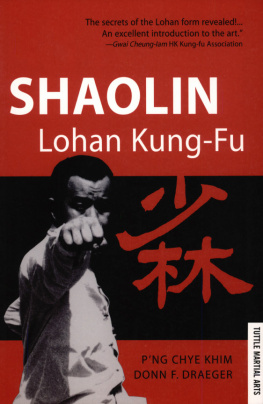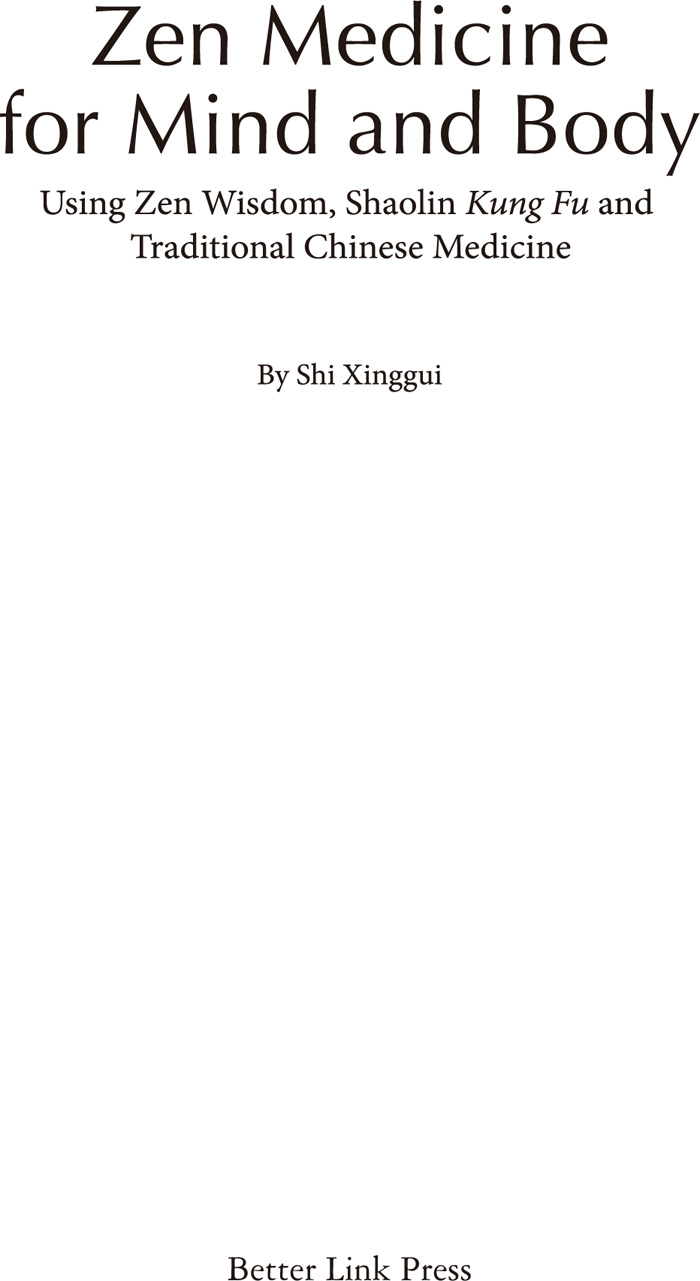
Copyright 2020 by Shanghai Press and Publishing Development Co., Ltd. Chinese edition 2016 China Press of Traditional Chinese Medicine
All rights reserved. Unauthorized reproduction, in any manner, is prohibited.
This book is edited and designed by the Editorial Committee of Cultural China series.
Text by Shi Xinggui
Translation by Zhao Gang
Design by Wang Wei
Copy Editor: Shelly Bryant
Editor: Cao Yue
Editorial Director: Zhang Yicong
Senior Consultants: Sun Yong, Wu Ying, Yang Xinci
Managing Director and Publisher: Wang Youbu
ISBN: 978-1-60220-165-1
Address any comments about Zen Medicine for Mind and Body: Using Zen Wisdom, Shaolin Kung Fu and Traditional Chinese Medicine to:
Better Link Press
99 Park Ave
New York, NY 10016
USA
or
Shanghai Press and Publishing Development Co., Ltd.
F 7 Donghu Road, Shanghai, China (200031)
Email:
Printed in China by Shanghai Donnelley Printing Co., Ltd.
1 3 5 7 9 10 8 6 4 2
The material in this book is provided for informational purposes only and is not intended as medical advice. The information contained in this book should not be used to diagnose or treat any illness, disorder, disease or health problem. Always consult your physician or health care provider before beginning any treatment of any illness, disorder or injury. Use of this book, advice, and information contained in this book is at the sole choice and risk of the reader.
Quanjing provides the images on pages 80, 82, 83, 97, 99, 101, 103, 116, 118, 122, 124, 126, 129, 130 and 137.
Introduction
Illnesses Come from the Mind, So Treatment Should Too
I n his teens, my grandfather became a monk in the Shaolin Temple. There, he practiced martial arts diligently and won the title of Champion of Martial Arts when he later returned to secular life in the late 19th century. However, due to the social upheaval at that time, he returned to his hometown in Dengfeng, Henan Province, only in his old age. Because I was physically weak and often got sick when I was a child, he sent me to the Shaolin Temple to be tutored by Master Dechan.
In the Temple, I learned not only martial arts (wushu), which helped me build a strong constitution, but also studied authentic Zen medicine. Originated in the Shaolin Temple, Zen medicine developed under the influence of Zen Buddhism, incorporating meditation, kung fu, and medicine. In early times, because the monks often sat for long periods in meditation, their main and collateral channels tended to become blocked, disrupting their blood circulation. Searching for a solution to this problem, they began to practice martial arts and, at the same time, discovered many secret medical formulas based on the rich medicinal materials found on Mount Songshan, where the Temple is located, and developed various folk recipes as the constantly accumulated greater experience in medical treatment. While practicing martial arts, they also created numerous formulas that improved health and had sound medicinal effects. Together, these studies brought about the unique Shaolin Zen medicine, characterized by such medical treatments as qigong (breathing exercises), massage, and vital point treatment. Zen medicine, which emphasizes daily health care and cultivation of the body and soul, offers targeted methods for specific medicinal treatment. In addition, the internal exercises for self-cultivation, the external exercises to build the muscles and bones, and the food therapies it created have remained in use until today, bringing many benefits to modern society.
Years later, after graduating from medical school, I became a doctor. I gained some level of fame even as a very young doctor, simply because I utilized Zen medicine in treatment and used the knowledge found in Bodhidharma Yi Jin Jing and Xi Sui Jing to help patients recover. As the crystallization of medical wisdom lasting for nearly two thousand years, both have extraordinary medical effects. As time went on, I gradually formed my own approach to medicine, combining the wisdom of Buddhism, modern rehabilitation medicine, Zen medicine, and my own experience as a doctor. The extraordinary medical effects thus produced spread far and wide, attracting increasing numbers of patients who sought advice.
I am always eager to excel. An embarrassing event from my childhood demonstrates how eager I was to excel. As part of the training, all the little monks in the Shaolin Temple are made to stand on their heads for as long as the instructor tells them to. A physically weak girl, I often stood longer than most of the boy monks. However, one time, I drank some water before the exercise, and not long after we started I needed a break to visit the washroom. Not wishing to be the first to admit defeat, I tried hard to hold it in. Eventually, urine trickled down my face and mixed with the tears there. This eagerness to excel transformed me into a responsible doctor when I grew up. I worked no less than 16 hours a day in my early years of practice, turning away no patients who came to me for help.
After some time, I began to experience frequent abdominal pain and diarrhea. I never imagined it was cancer. Very soon, I found that I was wrong, and the pain was getting increasingly frequent and the diarrhea increasingly severe. Whats worse, I became drastically emaciated. The diagnosis revealed that I had contracted terminal colon cancer, which, by then, had spread to other parts of the body, including the womb, ovary, pelvis, and abdominal wall.
That was 1996, and it changed my fate. Before, I felt that death was something distant, but now it loomed right in front of me. But I really didnt want to die.
Although I grew up in the Shaolin Temple, I did not believe in Buddha or the Bodhisattva. However, lying in my sickbed, I chewed on the word found in Buddhist scriptures, and I suddenly felt that they were true. I silently chanted the name of the Goddess of Mercy again and again, until one day, a miracle happened. In a moment between sleep and waking, I felt the Goddess in white breeze into my room, sprinkling sweet dew-water over me. I grew warm all over, as if I were being electrified. A tingling, supremely comfortable sensation overcame me.
At that moment, I knew I would not die, but must return to the Shaolin Temple.
I was excited by this thought. Childhood memories floated before my eyes. I began to miss the revered Master Dechan and the days when I practiced martial arts, made up prescriptions, and recited words in the scriptures. My desire to live grew even stronger. I came to realize that I needed to practice Buddhism and make up for what I had lost. Later, guided by Monk Suxi, I became a Buddhist monk. Each day after doing exercises, I would devote all my time to reading The Tripitaka, a collection of all Buddhist scriptures that includes all the Buddhist disciplines and works of eminent monks from the past and present. I had studied it when I was young, but not systematically. Besides, I had forgotten much of it by this time. Now, I had to act like a newcomer and learn it afresh and systematically.
Reading the scriptures in a calm mood, I was finally awakened. My obsessive emphasis on gaining personal fame and my eagerness to outdo others in whatever I did had put my mind in turmoil, which eventually resulted in me contracting cancer.
While in the Temple, I was not given a comfortable room to live in, out of consideration for my illness and old age. Instead, I rented a dilapidated hut from a beekeeper. It was close to the Dharma Cave, where the founder of Zen Buddhism faced a wall in meditation for nine full years. From that time on, I started to practice Buddhism in the real sense. Every day, after reading
Next page
